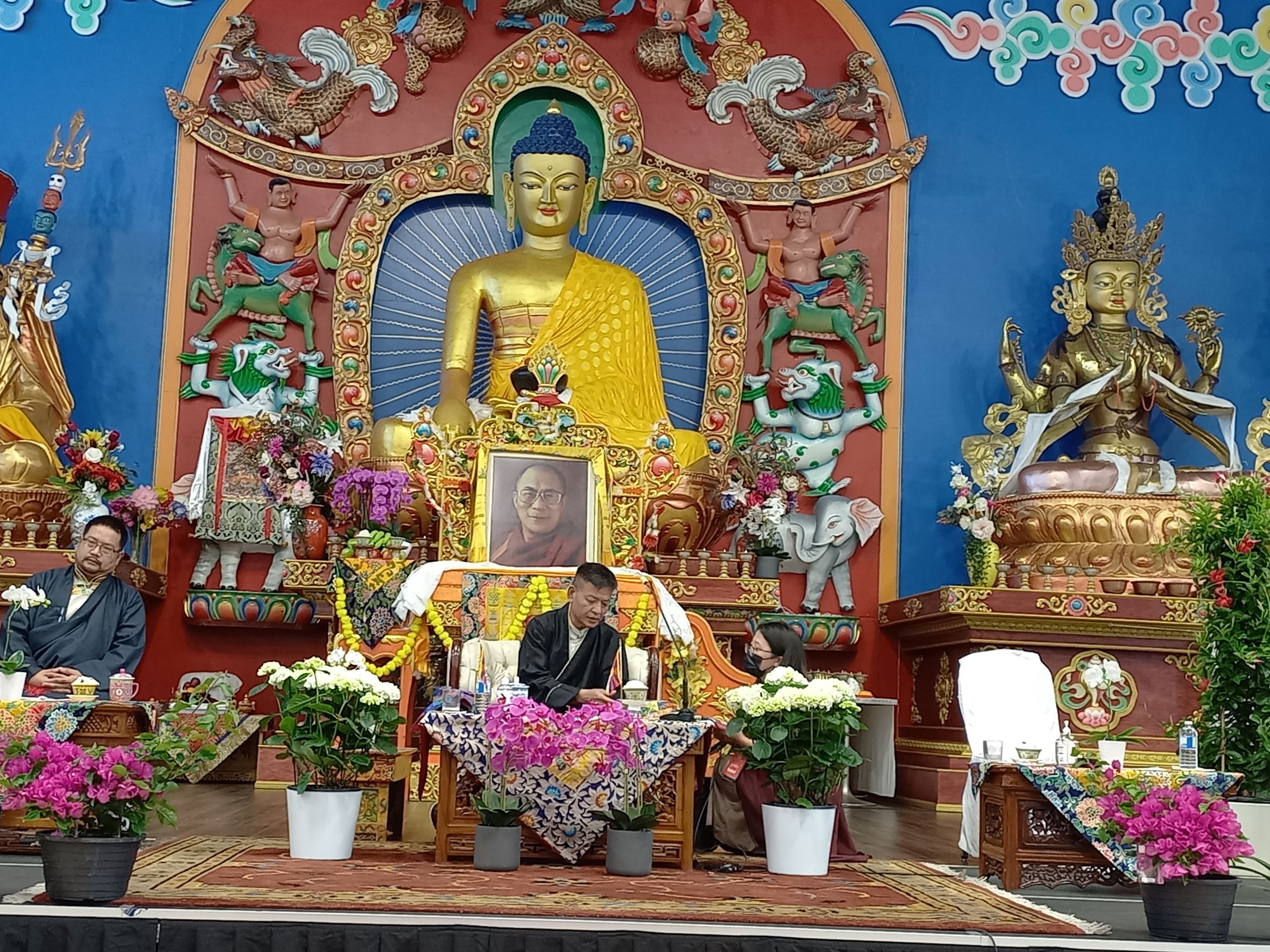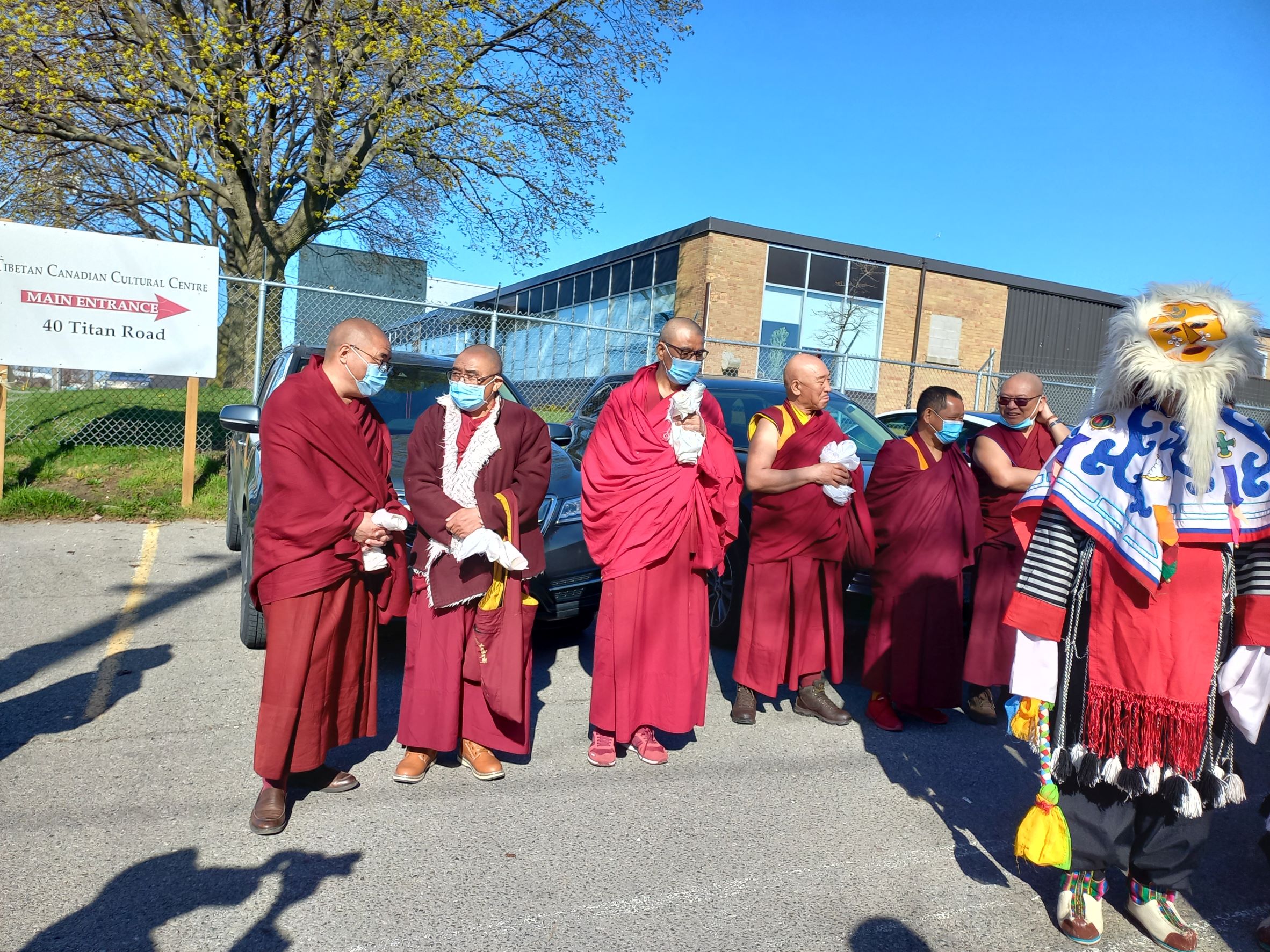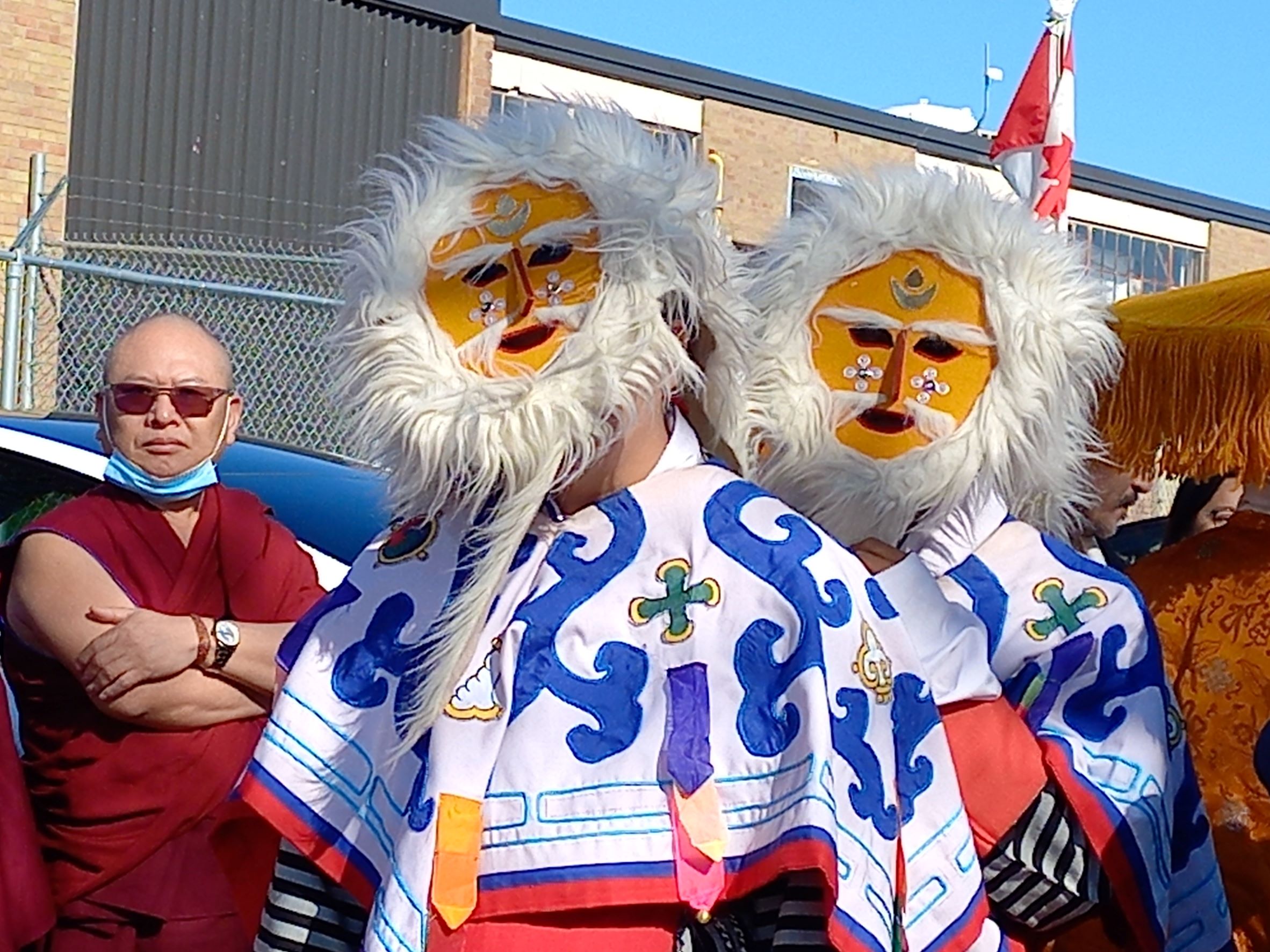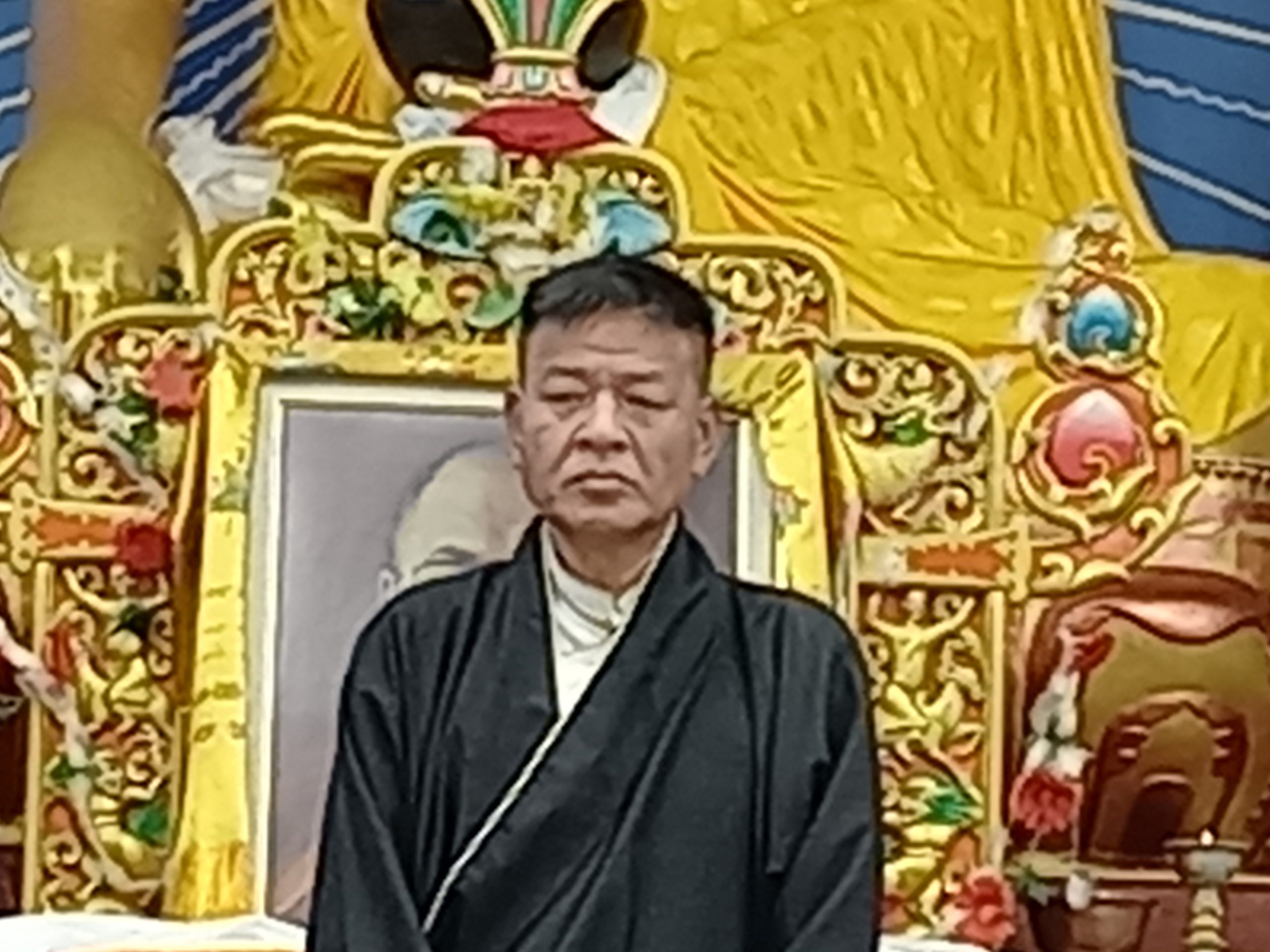Hundreds of Tibetans gathered last week to welcome their country’s leader on his first visit to Canada.
The head of the Tibetan government in exile made a rare appearance in Toronto to visit with Tibetans here at the Tibetan Canadian Cultural Centre, on Titan Road.

The Tibetan leader in exile on his first Toronto visit to temple in South Etobicoke. Photo by Tom Godfrey.
Many Tibetans waiting to see Sikyong Penpa Tsering were dressed in formal attire as they waited to shake hands with the leader in waiting.
Tsering who is leader of the Central Tibetan Administration, started off his western trip with a visit to Washington, D.C., before vising Ottawa, Montreal and Toronto. In Ottawa he addressed the Canadians Parliamentary Friends of Tibet, attended a reception and spoke to the Tibetan community of Canada.
He left Canada on May 10.
The leader was given the Royal treatment as he was escorted to the Titan Road temple with a motorcycle patrol with sirens blaring.
Members of the community cheered and waved as Tsering and his security team arrived.
Community leader Young Doung Tenzin said it is the first time Tibetans here has met the leader.
“It is his first visit to Canada and it is very important,” Tenzin says. “It is his first foreign trip since he was elected President of the Tibetan people in exile.”
The temple was packed as Tsering gave a public talk in Tibetan to the hundreds of followers.
Penpa Tsering, former speaker of Tibet’s exile parliament, was officially named by the Tibetan Election Commission in April 2021 as Sikyong, or political leader, of the India-based exile government, the Central Tibetan Administration.
Winning 34,324 votes in a closely fought April 11 election held in Tibetan communities worldwide, Tsering had moved decisively ahead of the 28,907 votes secured by rival Kelsang Dorjee Aukatsang, who congratulated Tsering on his win.
The Tibetan diaspora is estimated to include about 150,000 people living in 40 countries, mainly India, Nepal, North America, and in Europe.
Tsering now replaces Lobsang Sangay, a Harvard-trained scholar of law, who had served two consecutive five-year terms as Sikyong, an office in the northern Indian city of Dharamsala filled by candidates elected since 2011 by popular vote.
Formerly an independent nation, Tibet was invaded and incorporated into China by force 70 years ago, and Tibetan spiritual leader the Dalai Lama and thousands of his followers later fled into exile in India and other countries around the world following a failed 1959 national uprising against China’s rule.
Chinese authorities maintain a tight grip on the region, restricting Tibetans’ political activities and peaceful expression of cultural and religious identity, and subjecting Tibetans to persecution, torture, imprisonment, and extrajudicial killings.


